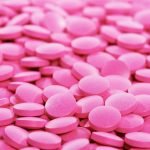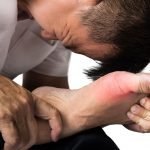Homeopathy Comes Back Swinging with Formal Complaint to NHMRC
Homeopathy Research Institute (HRI) Recently Published Formal Complaint
The Homeopathy Research Institute (HRI) has recently published its formal complaint to the Commonwealth Ombudsman regarding the 2015 review of homeopathy conducted by the National Health and Medical Research Council (NHMRC). It’s nothing new that homeopathy is being criticized, and dragged through the mud, but the 2015 NHMRC review is not just any publication – it’s a “gold standard” review process, which is globally trusted, with the potential of shaping consumer and practitioner access, safety and opinion. When HRI teamed with Complementary Medicines Australia (CMA), Australian Homeopathic Association (AHA), and Australian Traditional Medicine Society (ATMS) to rigorously analyze this review, the findings were horrifying.
NHMRC’s Conclusion in 2015
The NHMRC’s conclusion in 2015 was that “based on the findings of a rigorous assessment of more than 1800 papers, homeopathy should not be used to treat health conditions that are chronic, serious or could become serious.”1 As soon as HRI began to analyze the review it became clear that the “1800 papers” was in fact 176, and that after an unprecedented and never before utilized inclusion criteria was applied, only 5 studies were actually utilized in the reviews. This was the first breach of 3 key safeguards that are typically used in research publications to ensure unbiased presentation of information; use of standardised and accepted scientific methodology. The use of a never before utilized inclusion/exclusion criteria certainly seemed biased, but perhaps understandable in some scenarios.
Safeguards Seriously Called into Question
The other 2 safeguards that are used in research to avoid bias are adherence to internal policies and procedures such as conflict of interest policies as well as transparency and accountability. Both of these safeguards have been seriously called into question by the formal complaint of the HRI. The chairman of the review committee was also a member of an anti-homeopathy lobby organization, which presents a large conflict of interest. When this was brought to the attention of the NHMRC, he was replaced as chairman, but continued to serve on the committee in other capacities. Furthermore, there was no expert in homeopathy, or homeopathic research included on the committee, an oversight that is simply not heard of in a scientific peer review process. The full HRI report includes more detailed information regarding the questionable nature of the review.
Just One Drop
The formal complaint by the HRI also includes a close examination of 5 clinical conditions for which homeopathy has been shown with reliable evidence (even by the NHMRC’s inclusion criteria) to be effective in treating the following – diarrhea in children, sinusitis, allergic rhinitis, URI’s and low back pain. There is also a documentary, “Just One Drop,” which follows the HRI’s analysis of the NHMRC review over the last 2 years. “Just One Drop” premiered in London last month.
HRI Report: https://www.hri-research.org/resources/homeopathy-the-debate/the-australian-report-on-homeopathy/
“Just One Drop” documentary – http://www.justonedropfilm.com
Source
1. National Health and Medical Research Council. 2015. NHMRC Information Paper: Evidence on the effectiveness of homeopathy for treating health conditions. Canberra: National Health and Medical Research Council; 2015
 Node Smith, associate editor for NDNR, is a fifth year naturopathic medical student at NUNM, where he has been instrumental in maintaining a firm connection to the philosophy and heritage of naturopathic medicine amongst the next generation of docs. He helped found the first multi-generational experiential retreat, which brings elders, alumni, and students together for a weekend campout where naturopathic medicine and medical philosophy are experienced in nature. Three years ago he helped found the non-profit, Association for Naturopathic ReVitalization (ANR), for which he serves as the board chairman. ANR has a mission to inspire health practitioners to embody the naturopathic principles through experiential education. Node also has a firm belief that the next era of naturopathic medicine will see a resurgence of in-patient facilities which use fasting, earthing, hydrotherapy and homeopathy to bring people back from chronic diseases of modern living; he is involved in numerous conversations and projects to bring about this vision.
Node Smith, associate editor for NDNR, is a fifth year naturopathic medical student at NUNM, where he has been instrumental in maintaining a firm connection to the philosophy and heritage of naturopathic medicine amongst the next generation of docs. He helped found the first multi-generational experiential retreat, which brings elders, alumni, and students together for a weekend campout where naturopathic medicine and medical philosophy are experienced in nature. Three years ago he helped found the non-profit, Association for Naturopathic ReVitalization (ANR), for which he serves as the board chairman. ANR has a mission to inspire health practitioners to embody the naturopathic principles through experiential education. Node also has a firm belief that the next era of naturopathic medicine will see a resurgence of in-patient facilities which use fasting, earthing, hydrotherapy and homeopathy to bring people back from chronic diseases of modern living; he is involved in numerous conversations and projects to bring about this vision.










